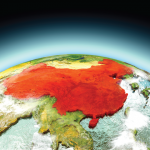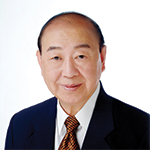
The 24 rheumatologists in Pakistan fight an uphill battle every day–they care for a population of roughly 160 million people. Granted, not all Pakistanis need the care of a rheumatologist, but approximately 24 million people are likely to develop some form of rheumatic disease in that country alone, and one million patients per trained physician is an overwhelming prospect. As a first step to address the problem, Nighat Mir Ahmad, MD, a U.S.-trained, board-certified rheumatologist and ACR International Fellow, and her colleagues have established one of three rheumatology training programs in Pakistan, and they have done so with the help of colleagues from the ACR and other organizations.
Dr. Ahmad says that when she came to Pakistan in the 1990s, she was the first female board-certified rheumatologist in the country. “When I left the United States,” she says, “I felt that I would not be able to handle the challenge ahead of me by myself.” In the years since her return, however, she and her colleagues have developed the training program at Fatima Memorial Medical College in Lahore and worked as members of the Pakistan Society of Rheumatology (PSR). Dr. Ahmad has served as president of the PSR.
Dialogue with China
Pakistan, however, is not the only country where the ACR has worked to improve the practice and science of rheumatology, and is not likely to be the last. The ACR, as an organization, makes regular contributions to global medical education.
Collaboration and exchange were the goals of the “East Meets West Dialogue,” a program that debuted at the 2010 annual meeting in Atlanta and involved 19 Chinese rheumatologists who attended the meeting under the sponsorship of the China Medical Tribune (CMT). A Chinese-language publication that covers medicine in China, CMT created the program to help lower the barriers to participation in Western medical meetings for Chinese doctors in a number of specialties. CMT helped more than 150 doctors attend meetings last year and expects to help more than 400 doctors travel abroad in 2011. CMT has worked with medical societies such as the European League Against Rheumatism, the World Heart Federation, the American Diabetes Association, the International Union Against Cancer, and the San Antonio Breast Cancer Symposium, as well as the ACR. Pfizer was the primary corporate sponsor for the 2010 program with the ACR.
ACR Immediate Past President Stanley B. Cohen, MD, says, “During my year as ACR president, I had the opportunity to interact with rheumatologists from all over the world, and clearly our specialty is growing worldwide. It was clear from my visit to Hong Kong for APLAR [Asia Pacific League of Associations for Rheumatology] that the interest in rheumatology is expanding, as demonstrated by the significant increase in the number of participants at the conference over the last several years. The growth in both basic science research and clinical research in Asia was reflected by the quality presentations at the meeting.”


